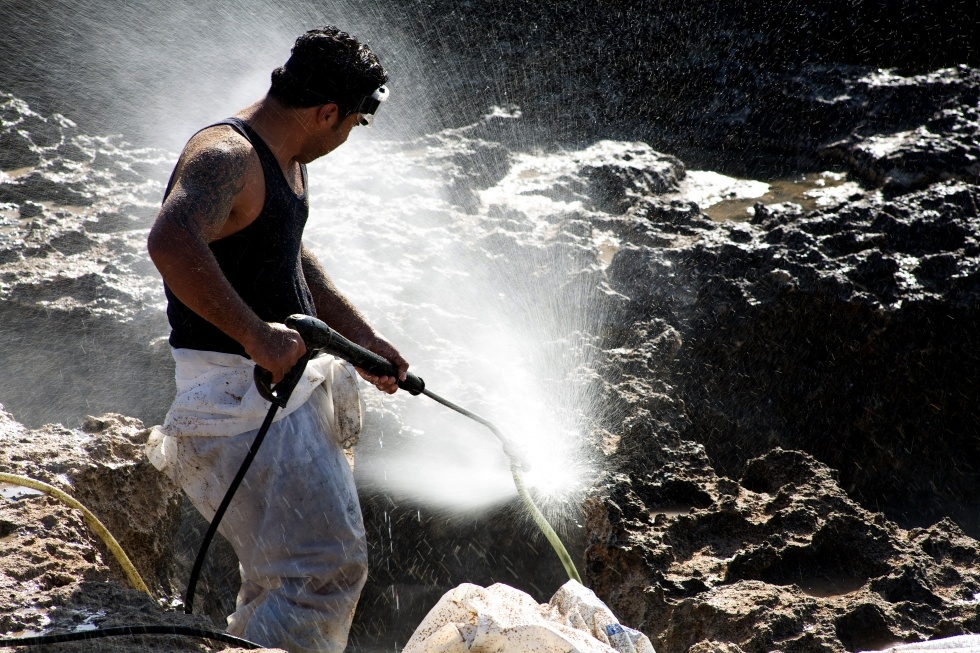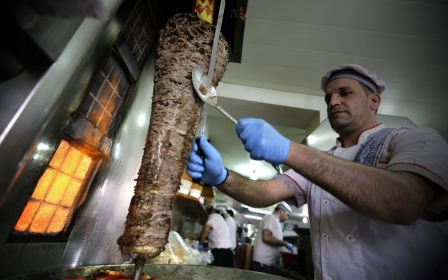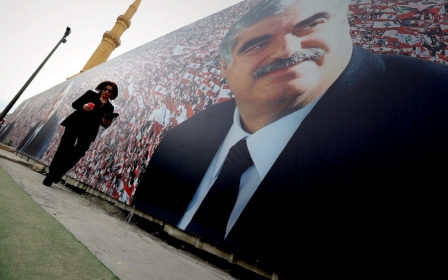Stalling for oil: Lebanon blessing in disguise

At a very young age, Lebanese schoolchildren are taught that the country’s only commodity is its people’s education, coupled with the entrepreneurial legacy they have inherited from their seafaring Phoenician forefathers. Thus, the Lebanese economy has been mainly geared towards the service industry, including finance and tourism.
The recent discovery of oil off the coast of Lebanon however has brought about a number of new challenges both to the Lebanese economy as well as to the ruling elite.
Chiefly, how does one make sure this natural resource does not fall prey to the regional, as well as the domestic quandaries, Lebanon is legendary for?
In 2010, the Levant Basin - which Lebanon shares with both Israel and Cyprus - was estimated at having 122 trillion cubic feet of recoverable natural gas, and 1.7 billion barrels of recoverable oil. Lebanon has claims to perhaps more than 30 trillion cubic feet (tcf) of this natural gas and 660 million barrels of oil.
Naturally, this was received positively by the Lebanese at large mainly because the oil revenues would theoretically rid the country of LL100,345 billion (US$66.56bn) of public debt.
However, Lebanon’s discovery of oil and its desire to capitalise on this newly found resource is a long and arduous track that requires two main obstacles to overcome.
Firstly, the regional security setting concerning mainly Israel and Hezbollah, which for all its difficulties offers up avenues for change. And secondly, and perhaps more challengingly, the ability of the ruling elite to agree on a common vision and mechanism which would be essential for the success of this venture.
Conflict prone borders
The Lebanese-Israeli relation, or lack of, is regulated by the 1948 armistice agreement, as well as by the subsequent UNSC resolutions culminating with the 1701 resolution that ended the 2006 Israeli war on Lebanon. More important in this equation though is the state of war between the Israeli state and Hezbollah who both reserve for themselves the right to break the armistice whenever they deem fit.
In principle the prospect of oil and gas, could intensify divisions as both sides struggle to get their hands on the riches lying beneath the sea.
In 2010, after both countries argued over demarcation lines of one of the oil fields, Uzi Landau, Israel’s National Infrastructure Minister at the time warned that Israel “will not hesitate to use our force and strength to protect not only the rule of law but the international maritime law”.
Consequently, Hassan Nasrallah, secretary general of Hezbollah, replied to these threats with threats of his own by clearly stating that “those who harm our installations will have their own installations harmed".
In principle, this not-so-cheerful situation should discourage any foreign oil company from drilling for oil. In reality, the prospect of riches have pushed many to disregard the dangers.
The Lebanese Petroleum Administration (LPA) has received 52 pre-qualification applications by leading companies in the oil industry. Of these, 12 applicants pre-qualified as right-holders operators and 34 as right-holders non-operators. Chevron, ExxonMobil, MAERSK, Shell, and Total are just some of the entities which are intent in delving into the uncertainties of Lebanon’s oil.
Beyond these technicalities, it is clear that these regional challenges did not scare away anyone interested in capitalising on Lebanon’s oil, mainly because such disputes over oil demarcation - or any such problems that might arise from oil excavation - are regulated by international law and by a wide body of agencies and legal precedencies.
While parties to the conflict do not really need any reason to fight, the discovery of oil will benefit both Lebanon - Hezbollah as well - and Israel and therefore both sides will perhaps continue to use vocal intimidation, but will avoid turning these words into actions. Additionally, most of these oil companies are used to working in conflict areas and they are well aware that with great risks come great rewards. The case of Lebanon is no different.
While many of these companies have not been scared by these regional challenges, Lebanon’s infighting might prove a more challenging obstacle.
Internal squabbling
The other perhaps more unsurmountable hurdles for the flow of oil are the domestic challenges, more specifically the will of the ruling class to agree on a common vision for the sector.
The Lebanese parliament has failed to elect a president for the republic for the last 20 times it has convened, leaving the highest elected seat vacant for the last 302 days as of 23 March. This deadlock has been mirrored by all other aspects of governance - from the appointment of low-ranking government administrators to the more important decrees such as those needed for the exploration to progress.
While the previous government in April 2012 issued decree 7968/2012, establishing the Lebanese Petroleum Administration, the current government has yet to seriously debate two important decrees. These decrees are the block delineation and the tender protocol and the model exploration and production agreement (EPA). For now, these two decrees seem to have been shelved by the current cabinet without any deadline in sight.
What is more alarming though is the fact that the whole Lebanese oil affair lacks vision or a master strategy. Not having either for a discovery as important as this could make or break the Lebanese economy. Previous international experiences with oil have led to two models which Lebanon has to be aware of: so-called Dutch disease at the negative end of the spectrum and the Norway model, also known as Government Pension Fund Global, at the positive end.
As it stands, the Lebanese government, through design or perhaps laxity, is heading towards the former model which would lead to laziness in the economy and over-reliance of foreign currency. This doesn’t bode well for the country at least not in the long run.
Instead, the government should strive to opt for the Norwegian model which takes into account the economic and social ramifications of oil and how the funds generated can be invested with a more sober vision to the future.
Realistically, however, none of the ruling elite or the government agencies involved thus far have a vision relating to stable economic growth or to the role of oil in domestic use or export.
We have seen this pattern before. When the telecommunications sector was introduced in the mid 1990s, late PM Rafik Hariri used the telecommunications industry in the same way that oil is now being used today to imply that Lebanon's economic salvation is within reach. Yet again, the lack of clear goals and poor implementation made this sector another failed endeavour. Thanks to these mixed polices, Lebanon, as it stands, ranks at 176 globally with a not so impressive internet speed of 3.2 Mbps.
With the discovery of oil and gas, the Lebanese have been left faced with very few options. They can either move forward by adopting a serious vision towards the future of their oil, or they can abandon the dream altogether and sink their teeth into less hazardous enterprises.
Lebanon’s pine nut industry for instance shows great promise. At $70 a kilo compared to the messily $50 a barrel for oil, it means that Lebanon’s foot dragging might yet prove useful for the country after all.
Whether telecommunications, oil or pine nuts, Lebanon with its fairly small economy can find a way to rebound, but what remains lacking is the discovery of a formula that will ensure that the Lebanese do not waste yet another chance to save their country from economic and political collapse. Perhaps a little time wasting will therefore prove to be a blessing in disguise.
- Makram Rabah is a PhD candidate at Georgetown University’s history department. He is the author of “A Campus at War: Student Politics at the American University of Beirut, 1967–1975” and a regular columnist for Now Lebanon.
The views expressed in this article belong to the author and do not necessarily reflect the editorial policy of Middle East Eye.
Photo: A Lebanese worker uses water pressure to clean-up the oil spill which polluted the Rabbit Island, offshore the Nothern Lebanese city of Tripoli, on March 31, 2009. The oil spill was caused by the explosion of fuel reservoirs stationed in the southern coastal town of Jiyyeh during the Israeli offensive on Lebanon in July 2006. (AFP)
New MEE newsletter: Jerusalem Dispatch
Sign up to get the latest insights and analysis on Israel-Palestine, alongside Turkey Unpacked and other MEE newsletters
Middle East Eye delivers independent and unrivalled coverage and analysis of the Middle East, North Africa and beyond. To learn more about republishing this content and the associated fees, please fill out this form. More about MEE can be found here.





